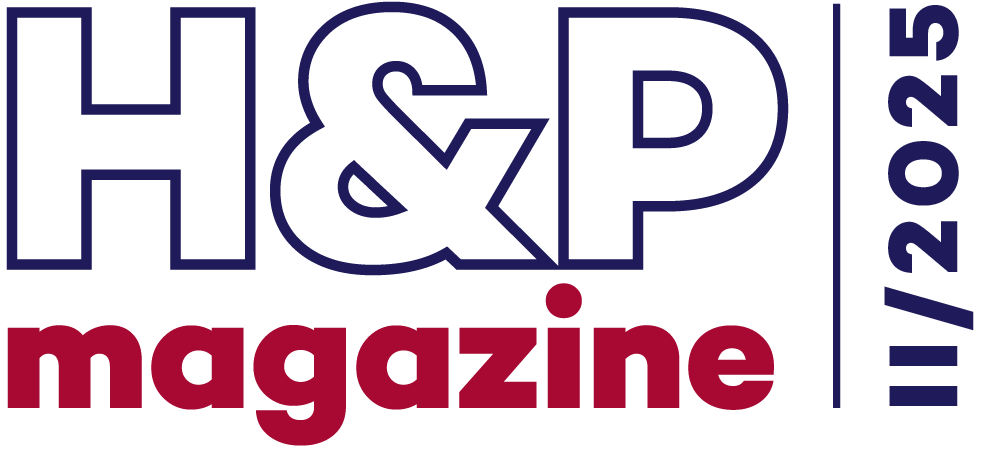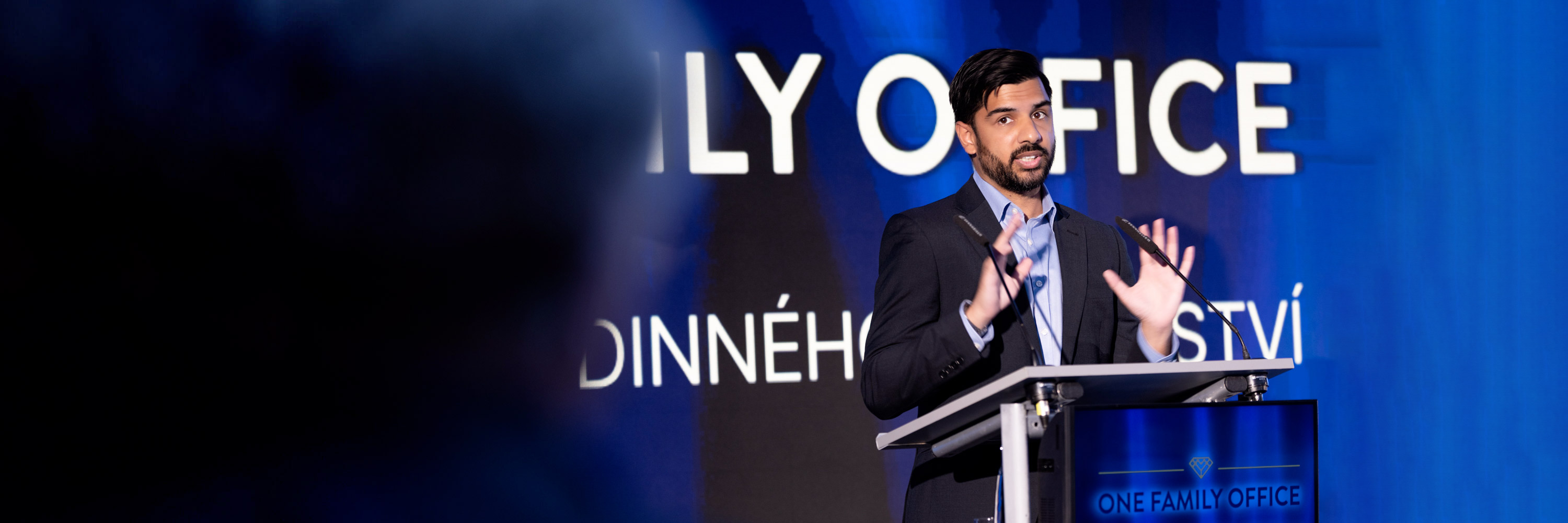Private equity is no longer the preserve of institutional investors. “What was previously only available to institutions is now more accessible. People are richer, more global and better informed, often because of their education at banks or their own experience, for example, selling their companies to private equity funds,” said Arham Karim of Bain Capital in an interview.
A finance expert who joined Bain Capital in 2023 and works as a Vice President in the Investor Relations team, focusing on the Middle East region, Arham Karim brought his experience working for high-net-worth clients from Citigroup in London, where he managed relationships with ultra-high net worth investors and family offices.
Bain Capital also has experience in the Czech market, having made its mark three years ago, when Tech Opportunities, its technology division, invested a record $150 million in Ataccama, a Prague-based data company. At that time, it was the largest ever Series A investment on the Czech startup scene. Together with the Cinven fund, Bain also owns Stada, a German pharmaceutical company. Its factory in Třinec produces tens of millions of packages of medicines and food supplements each year. In the area of private equity, where Bain Capital manages the assets of the world’s wealthiest people, Czech families have access to the fund thanks to Jaroslav Havel’s ONE FAMILY OFFICE. The family office has the opportunity to invest in Bain Capital.
You should not enter the world of private equity without understanding it. You need to understand the investment process, the obligations owed to the fund and the capital calls, up to the exit.
Arham Karim, Vice President of Investor Relations at Bain Capital, talks about the changing investment environment, the growing role of wealthy families, and the sectors that will be on investors’ radar in the coming years in an interview during the exclusive ONE FAMILY OFFICE biannual conference in Prague.
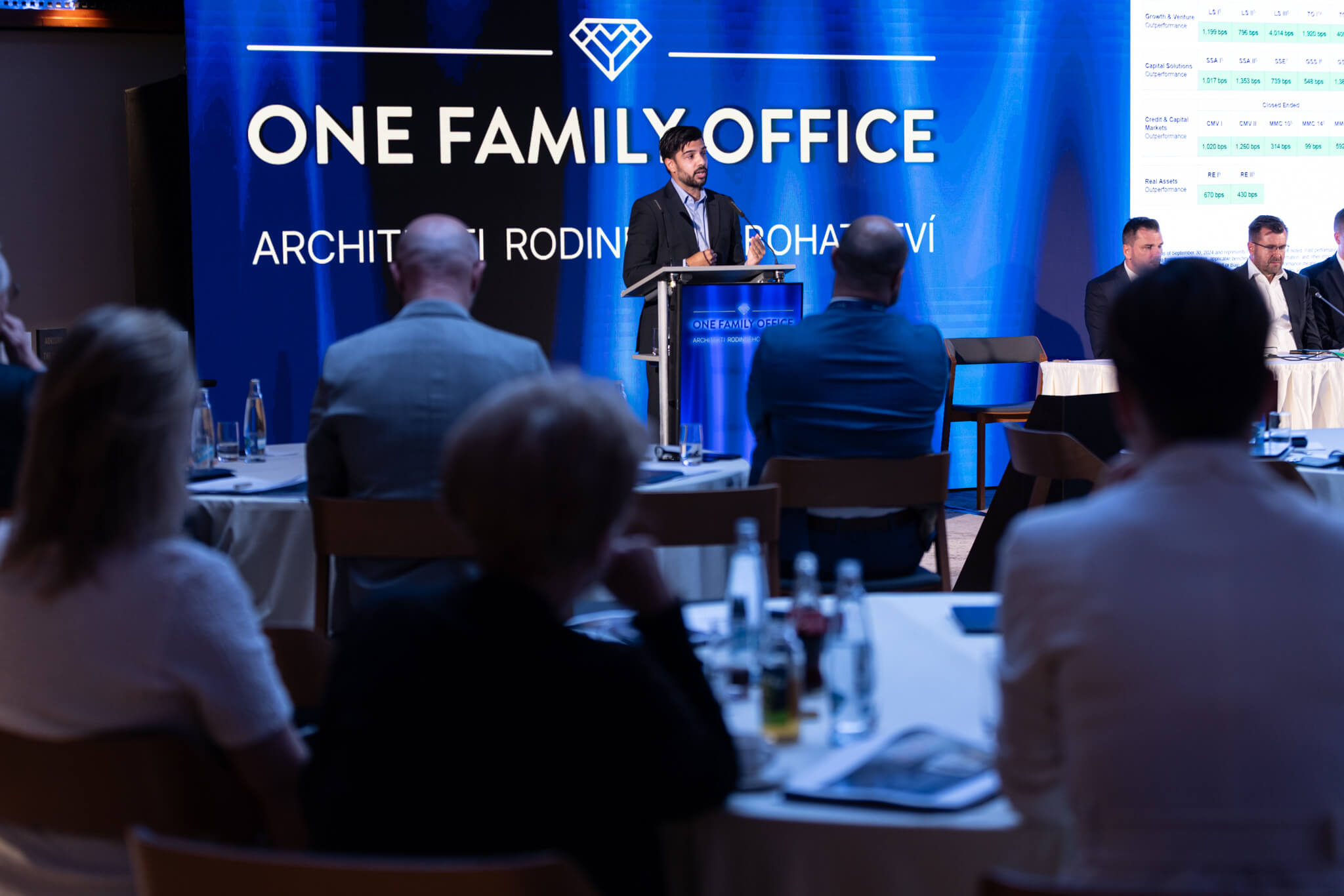
It is not yet very common for smaller Czech investors to invest in private equity, especially on a global level. Why do you think they should pay more attention to this segment?
It’s all about education – and that’s where ONE FAMILY OFFICE can play an important role. You should not enter the world of private equity without understanding it – you need to understand the investment process, the obligations owed to the fund and the capital calls, up to the exit. If an investor is unfamiliar with these principles, a misunderstanding or disappointment can arise, but once they understand them, it becomes clear why this is such an interesting segment.
And every investor should have at least some exposure in their portfolio, if only to diversify against the public markets. So it’s about thinking about asset allocation and how to build a well-balanced portfolio. That’s why at Bain Capital, we focus not only on private equity, but also venture capital, real estate and infrastructure – to help investors build portfolios that can withstand different market cycles.
What investment opportunities are investors looking at now?
This is very individual. Investments are very much managed by the investors themselves. Our clients are extremely sophisticated. My role, and that of my team, is to work closely with them, advising them on what works well in the market and bringing them insights from our global experience. But in the end, they know what they are doing and what they want, and they come to us with a clear idea. Our goal is to find and build the right solutions together.
You work mainly with investors from the Middle East, but you also meet European ones. How much do they differ in how they invest?
Overall, the global investment ecosystem is highly interconnected. Middle Eastern investors are in constant dialogue with their counterparts in the US and Europe. We really work with the most sophisticated investors and sharing knowledge and practices across regions helps everyone move forward. It depends on what investors are looking for, and it is not a question of the Middle East or Europe, it is a question of the investor alone.
How specifically?
Some investors prefer liquidity and are happy with lower risk in exchange for regular returns and income. Others take a longer-term view and are willing to make decade-long or even longer investments. Last week, I had two interviews. One investor said he was not concerned about the tariffs or what President Trump was doing. He thinks about his investments in the long term and these are just details for him. The second investor was more focused on the short-term outlook, thinking about what might happen in the next year or two. So at the end of the day, it really comes down to some basic investment theory and what your time horizon is, what your approach to risk is, or how you look at liquidity.
What led you to private equity?
I spent the last ten years on the other side – working in finance. But I realised that the real value is created in private markets. Gradually it became clear to me that private equity was where I could bring more added value to investors.
Are the trends changing in the sectors Bain is focusing on most now?
Definitely. Like many other funds, we focus on specific areas that we see as promising. This year, for example, we have launched a fund for leasing aircraft because there is a global shortage of them. We buy planes and lease them to airlines that can’t afford to buy them outright. Four years ago, we established a fund focused on the insurance industry. We saw an opportunity to bring innovation to the industry and build new platforms. We also have a fund focused on cryptocurrencies. The important thing is that Bain is a private company, and we are the largest investors in our funds. So it’s not just about management fees, it’s about actually creating value and delivering strong yields.
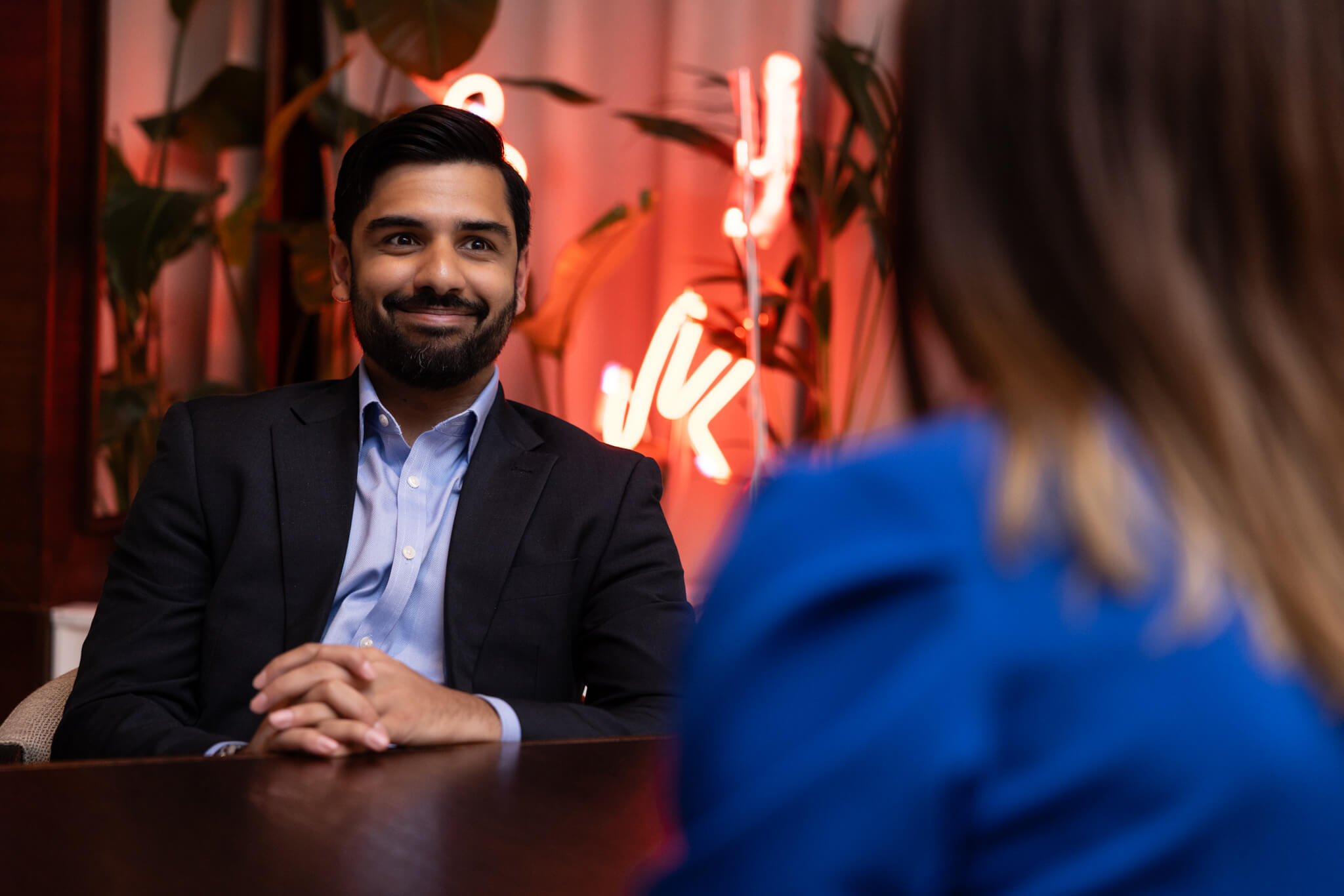
What about artificial intelligence?
We have been investing in AI for many years. In fact, we invested in our first AI company back in 2016 and are currently preparing to exit. So AI isn’t new to us, but we look at it in different ways over time. It’s true that AI is a hot topic right now, but it of course entails risks.
Investment risks?
Yes. They all claim to be doing AI, so it can be hard to separate real innovation from noise.
Does this mean it’s too late to invest in AI?
No, I don’t think it’s too late. In fact, I would say we are still at the beginning. Through our venture division, which we established in 2000, we continue to support and fund early-stage AI startups.
We meet in Prague. Is this region attractive to Bain Capital?
It definitely is. Europe is a long-term priority for us, with a team based in London and offices across the continent. We go where the opportunities are. In Central and Eastern Europe, our investments tend to be quite large and often require us to take control of companies. Yet we had a portfolio of companies that expanded into the region. For example, we own Valeo Foods, an Irish company that has many food brands under its umbrella. Through Valeo, we bought IDC, a Slovak food company known for its Mila wafers. So even though we don’t often make direct purchases, our portfolio is growing here. We are open to further opportunities in this part of Europe.
Is there any particular reason why this region is interesting for Bain Capital?
In our approach to investments, we are very conservative. We focus a lot on the US, Europe and developed Asia. Traditionally, we have not focused much on Africa or South America. So Europe is simply part of the global ecosystem for us. Historically, we focused more on larger markets such as Germany, Sweden, Italy. But we are also open to looking at opportunities across the continent.
Traditionally, private equity was mainly associated with large institutions. Is that changing?
Absolutely. Many firms engaged in private equity are starting to work more with family offices and wealthy individuals who manage their own assets. There are several reasons for this. One is that a number of new, sophisticated family offices with greater insight into the private markets have emerged over the past decade, and the other is the democratisation of private equity. What was previously only available to institutions is now more accessible. People are richer, more global and better informed, often because of their education at banks or their own experience, for example, selling their companies to private equity funds. So the learning curve has risen significantly, and we expect the trend to continue. It is a very interesting source of capital, growing in the future.
What do you think private equity will look like in 20 years?
I wish I had a crystal ball... For the last decade, we lived in a time of low interest rates. That has changed now, and interest rates are rising. It will be interesting to see how private equity adapts. At Bain, we place great emphasis on practical value creation, i.e. on helping companies grow and improve their operations. I think the whole industry will have to gradually return to this approach. It also depends on the development of the world economy, but it is already clear that technology and artificial intelligence are advancing at an incredible pace and offer huge potential. In addition, we also see great opportunities in Asia, which is now extremely interesting for investors.
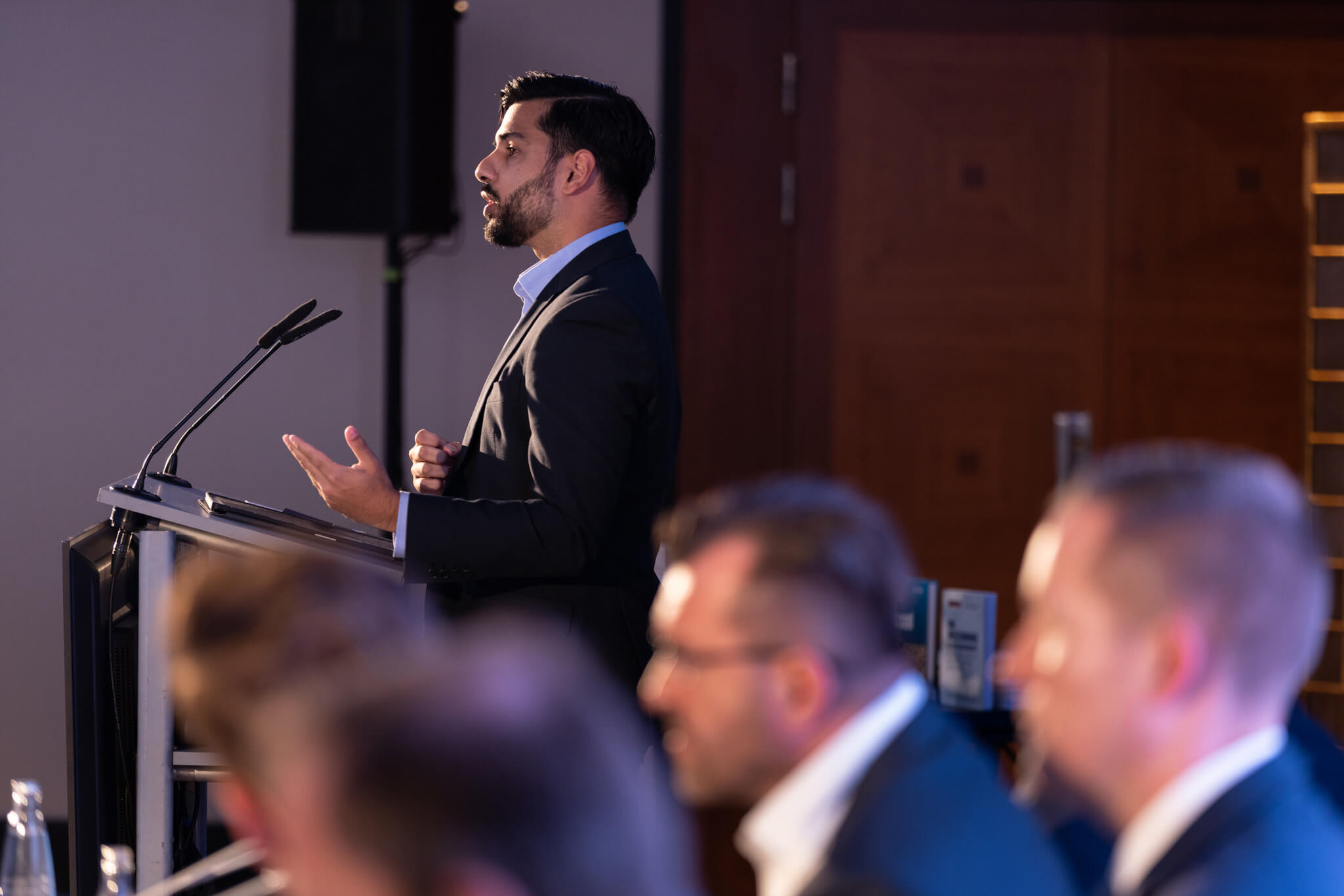
In what way?
We see how fast some markets are developing, for example in Japan, where we have really done well. That is why we are now fully developing our business in Asia and working with a pan-Asian strategy. For example, we see opportunities in South Korea, our Special Situations team has made investments in Indonesia, and our private equity team is very active in India. Asia has long been considered a difficult market. For example, last year the average return on private equity investments in the region was only 9 percent, which is not much. As a result, many investors felt that the risk outweighed the yield, but we believe this is gradually changing.
Arham is a Vice President at Bain Capital, where he has been a member of the investor relations team since 2023, focusing on business development across the Middle East. Prior to joining Bain Capital, he worked at Citigroup in London, managing relationships with ultra-high-worth investors and family offices. Arham studied economics at the University of Nottingham and is a Chartered Financial Analyst® (CFA) charterholder.
